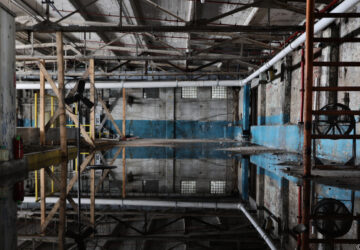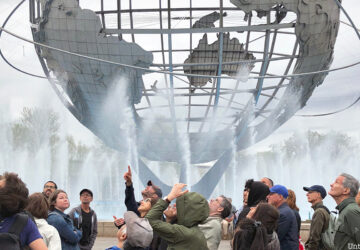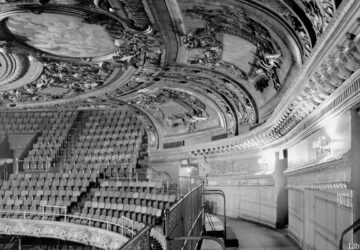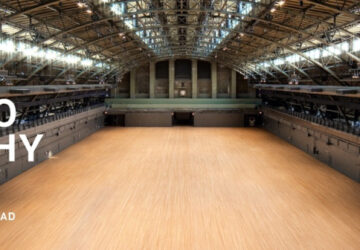5. Café Society – Past

Open from 1938 to 1948, Café Society was one of the most popular jazz clubs in NYC. It was located on Sheridan Square in Greenwich Village. The club was founded by Barney Josephson, a shoe salesman from Trenton, New Jersey, who modeled the establishment after political cabinets he had visited in Berlin and Prague. Josephine devoted the club to showcasing American music, which in his opinion he viewed as being the blues and jazz—art forms created by Black Americans. At a time in which Black Americans remained on the margins of America, Café Society became one of the few nightclubs in which Black and white patrons could sit together in the audience, both being treated with the same modicum of dignity and respect.
Along this vein, the club’s name was suggested by Clare Booth Luce to satirize the usage of “café society” as a term that represented members of the moneyed crowd, with Josephson’s club having been created to defy the pretensions of the rich. Josephson would go on to trademark the name which had previously been coined by the society columnist Maury Paul who wrote as “Cholly Knickerbocker” for the New York Journal American. Alongside the club’s name, Josephine also adopted the slogan “The wrong place for the Right people,” with the capital ‘R’ signifying the club’s leftist leanings.
Despite the club being fully integrated, most of its clientele ended up being white as the Great Depression prohibited most New Yorkers, especially those of the working class, from being able to afford the entrance fee, despite being reasonably priced for the time. Even so, over its ten-year run, Café Society held performances from many of the country’s greatest black musicians. One such musician was Billie Holiday whose first live performance of the song “Strange Fruit,” which sold more than a million copies after its release, took place on the club’s stage. At the insistence of Josephson, Holiday closed her set with the song and then proceeded to immediately leave the stage, allowing for the audience to fully digest the weighted meaning behind its lyrics. Holiday would go on to perform at the club for most of 1939, an endeavor that helped to build her onstage confidence and refine her act. Café Society also helped to launch the careers of Ruth Brown, Lena Horne, dancer Pearl Primus, and Big Joe Turner and popularized gospel groups like the Dixie Hummingbirds and Golden Gate Quartet.
Unfortunately, though the club was able to book well-known performers, profits were still not high enough to keep the business afloat. As a means of saving it, a second branch of the club was opened on 58th Street between Lexington and Park Avenue, coming to be known as Café Society Uptown, while the original location was Café Society Downtown. Unlike its downtown counterpart, Café Society Uptown sought to attract a more affluent clientele, which ranged from prominent Black artists and intellectuals such as Sterling Brown and Langston Hughes, the world heavyweight boxing champion Joe Louis, and even Eleanor Roosevelt.
In 1947, Josephson’s brother, Leon, a well-known communist, and attorney for both locations of the club, was subpoenaed by House Un-American Activities Committee for his political beliefs. As he refused to answer the committee’s questions he was charged and convicted of contempt of Congress and began a one-year jail sentence in March of the following year. Following this decision, both Leon and Barney were attacked by the press, leading to the clubs’ revenue dropping 45% in three weeks. After the club’s losses reached more than $900,000 Josephson sold the club on March 2, 1949. Though Café Society may have reached its end, Josephson went on to open a restaurant called the Cookery in the 1960s. After adding in a piano at the request of Mary Lou Williams, Josephson returned to his roots and began booking live music performances. Beginning in 1977, Alberta Hunter performed at the restaurant until her death in 1982. Just two years later, the Cookery was closed. After he passed away on September 29, 1989, a memorial concert was held in November at St. Peter’s Lutheran Church in his honor.





